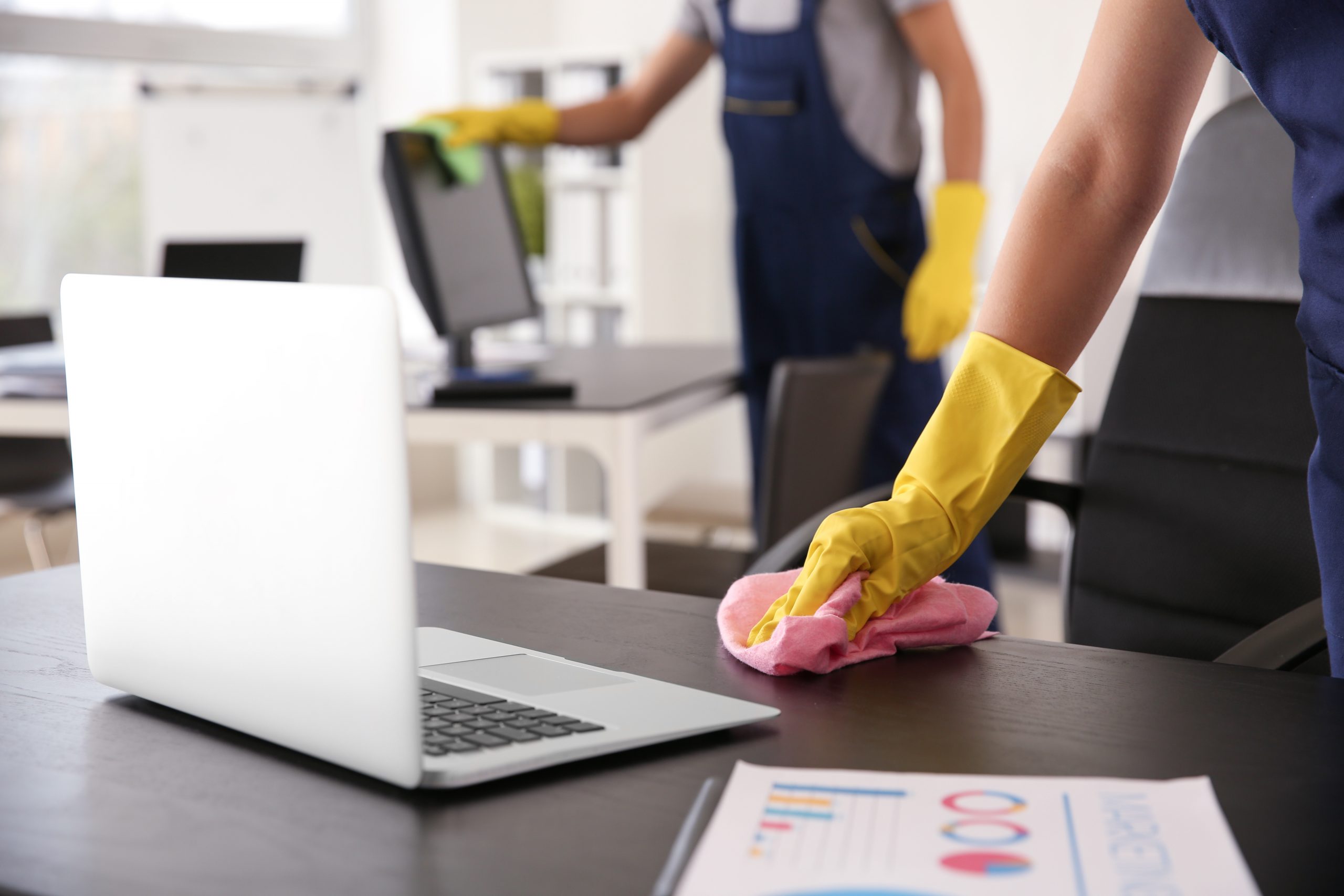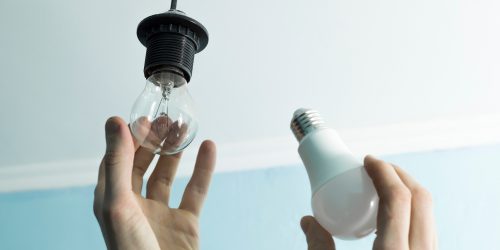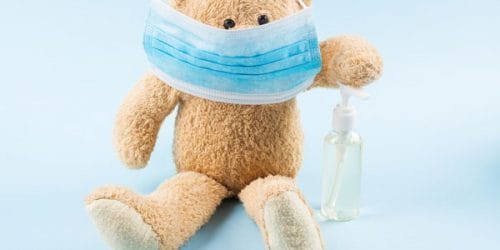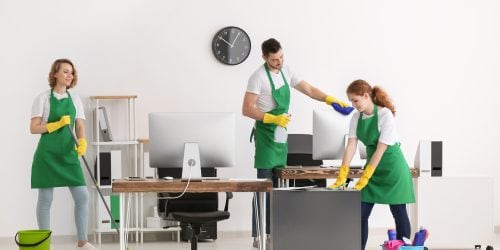Purchasing guide: Choosing your hygiene and cleaning products

The choice of your hygiene and cleaning products reflects your concern for the well-being and safety of your teams, and the protection of the planet. The main challenge is to find the right balance between efficiency and risk to the health of your employees and the environment. This guide includes all important elements to consider when shopping.
Hand hygiene is key to preventing hand-carried spread of viruses, bacteria and yeast. European regulations govern dedicated products to ensure their effectiveness.
Mild soaps
At the beginning of the health crisis, one of the first actions was to check that soap in common areas was virucidal. The purchase of disinfectant soaps should be encouraged in order to prevent the risk of an epidemic and to guarantee optimal hygiene.
In view of the frequency of use of soap, prefer products that are gentle on the skin and pH neutral. Paraben-free, EDTA-free and preservative-free solutions are best to avoid allergies and skin irritation.
Remember to choose soap dispensers adapted to your premises (toilet, workshops, changing rooms, etc.). Consider the following criteria when making your purchase:
- Capacity of the dispenser;
- Operating mode (manual or automatic);
- Dispenser type (wall-mounted, flush-mounted or floor-standing);
- Refill type (same brand or universal).
Finally, buying foaming soaps is often more economical. By creating a larger volume of foam in their hands, users tend to use less.
Professional soaps
Some professions are very dirty and require the use of industrial soaps. Conventional soaps are not strong enough to remove oil, glue, paint, resin stains.
Professional soaps are sold as paste, powder, or gel form. For those who do not have access to a water source, some no-rinse gels or wipes are effective on industrial soiling. For the sake of the environment, use gels instead of wipes.
Exfoliating microbeads are recommended for use in the industrial sector, as they remove the most stubborn stains. For grease residues, choose a formula enriched with glycerine. Products containing solvent are suitable for paint traces.
Disinfectant gels
To ensure good hand hygiene, hand sanitisers must comply with the requirements of the European Biocidal Products Regulation. They are effective from a volume of 60% alcohol. The mention of standards in their product sheet certifies that they have been tested on a category of micro-organisms. Complete disinfection is ensured by gels with a triple action:
- Virucide (coronavirus, influenza A, herpes…) ;
- Bactericide (Staphylococcus aureus, E. coli…) ;
- Levuricide (Candida albicans, Aspergillus niger…).
For good skin tolerance, choose products that do not contain dyes and have been tested under dermatological control. Glycerin-enriched formulas are more comfortable to use, as they moisturise the skin without sticking to the hands.
By installing sanitiser dispensing stations in your common areas, you will encourage your employees and visitors to disinfect their hands frequently. Place them in strategic locations. Captive dispensers should be refilled with products of the same brand. Universal dispensers are more economical, as you can refill them with 5 litre containers of your choice.
Adequate maintenance of the premises is guaranteed by a good knowledge of the products
Do you know the Sinner Circle? This system defines the four actions for quality cleaning: chemicals, mechanical power, temperature and contact time. When these steps are followed, it is possible to reduce the amount of product used. In order to maintain optimum cleaning quality, you need to use products that are suitable for your premises.
Their impact on the environment and health
Does hygiene have a place in your CSR policy? Yes, and even a central place when it comes to buying cleaning products. These cleaning substances lead to air and water pollution. By choosing environmentally friendly brands, you can significantly reduce their impact on the environment and the health of your employees. You can recognise them by the Cradle to Cradle, European Ecolabel or Ecocert labels. To obtain these labels, manufacturers must limit or ban the use of certain hazardous substances.
Reinforce your eco-responsible policy by buying concentrated and refillable products. This is an excellent way to reduce the amount of waste, but also the consumption of products. Indeed, your maintenance operators will be able to dilute them according to the use they make. The European Ecolabel certifies the effectiveness of a product, even at low doses. These products are biodegradable.
Traditional products (soap, white vinegar, black soap, bicarbonate of soda, etc.) have become key components of ecological cleaning. They offer a highly effective cleaning action. Note, however, that they are not disinfectants.
Are these products more expensive? No, they are equal to non-green products, both in terms of price and quality.
The effectiveness of detergents and disinfectants
What are the families of cleaning products? The two main categories are detergents and disinfectants. The former removes dirt and up to 80% of micro-organisms. The latter has a bactericidal, fungicidal or virucidal action. For example, the EN 14 476 standard guarantees their effectiveness against viruses. These are the products to be used to clean surfaces, floors, sanitary facilities, windows, etc.
| Parameters to be taken into account | Suitable cleaning products |
| Level of exposure to the micro-organism | The more you use these areas, the more regularly you will need to clean them. If possible, choose a product that is both a detergent and disinfectant. Disinfectants are only effective on previously cleaned surfaces. Porous surfaces cannot be disinfected. |
| Type of soiling | Detergents are classified according to their PH. Alkaline products (descaling agents) are suitable for organic materials and acidic products (degreasers, strippers) remove inorganic soiling. |
| Measure of your water’s hardness | If the hardness of your water is high, you should choose products with a proven antiscalant action. You will also use descaling products more often. |
Once you have done this, you can target products that are both effective and have minimal impact on the environment. Next, estimate the amount of product needed based on the frequency of use in the areas being cleaned. The more a space is used, the more it will need to be maintained.
Use pictograms to identify cleaning products that present risks for cleaners and invest in the appropriate Personal Protective Equipment (PPE) if necessary.
Cleaning accessories
The most important accessories for surface cleaning are microfibre cloths. Their ability to absorb dust and liquids has made them a must-have for cleaning purposes. To avoid the mixing of micro-organisms between rooms, it is advisable to use one colour per space.
Sponges and abrasive rollers are differentiated by their colour. Each colour determines the degree of abrasiveness:
- White: does not scratch fragile surfaces;
- Green: common use;
- Blue: light scouring;
- Red: wet or dry stripping of non-fragile surfaces.
Of course, take into account the regulations of your sector of activity when purchasing your equipment. For example, the HACCP food standard requires colour coding of food brushes in each area to avoid cross-contamination.
The cleaning trolley
The cleaning trolley is very practical, it can carry buckets of water, cleaning products, microfibre cloths, gloves, dustbins, towels, vacuum cleaners... For an ergonomic use, it must be easy to handle. A heavy and cumbersome trolley can lead to back pain. Therefore, choose light and durable materials that are suitable for your industry:
- Plastic is impact resistant;
- Chrome steel is economical;
- Rilsan steel reduces the risk of allergy;
- Stainless steel is very easy to disinfect.
Professional cleaning equipment for high-quality cleaning
Investing in specific cleaning equipment allows for deeper cleaning. The benefits for your cleaning operators are threefold: time savings reduced fatigue and a decrease in musculoskeletal disorders (MSDs). By choosing quality machines, you help your staff to ensure a high level of cleanliness in your premises.
The vacuum cleaner
The vacuum cleaner is the basic cleaning machine. You can choose it according to its power, the quality of its filters, its handling and its noise level. Some models are more or less adapted to the configuration of your premises: canister, backpack or even brush-type vacuum cleaners, for your carpets. There are four categories of vacuum cleaners:
- Dust (hotels, offices…);
- Wet and dry (construction sites, workshops, catering, etc.);
- Industrial (heavily soiled areas);
- Specific (hazardous dusts).
The sweeper
The sweeper is a dusting tool, not to be confused with a vacuum cleaner. It acts like a broom with a circular brushing motion. These machines are becoming increasingly sophisticated, and you can choose from the following models:
- Manual sweepers are suitable for medium-sized areas;
- Self-propelled sweepers are motorized, the operator guides them without pushing;
- Ride-on sweepers: the operator sits on the machine and steers it by means of a steering wheel;
- Sweeper-washers, which sweep and wash the surface in a single pass.
The single brush
For a more thorough cleaning, the single brush cleans, shampoos, strips, polishes and buffs your floors. Each model is characterised by the speed of its discs. You will choose it according to the use you wish to make of it:
- Low speed (washing, shampooing, stripping);
- High speed (polishing and buffing);
- Two speed (combines all functions).
The pressure washer
Use a pressure washer to remove dirt from your walls, floors or vehicles. Depending on how you will be using it, you should consider these 4 elements when making your purchase:
- Thermal or electric engine;
- Hot or cold water;
- Flow, pressure and power;
- Additional accessories.
Waste management, a key aspect of hygiene and respect for the environment
Sorting bins, office bins, ashtrays… all of these products are crucial for the hygiene of your premises. For efficient waste management, good equipment facilitates and encourages sorting and recycling.
How to choose your equipment? Manutan has designed a complete guide to help you: download our white paper “Waste management in companies” to find out everything you need to know on the subject.






